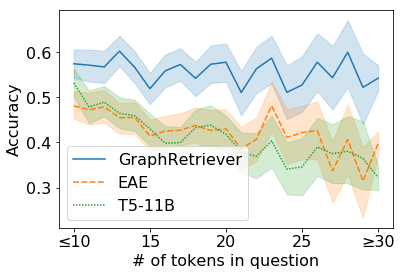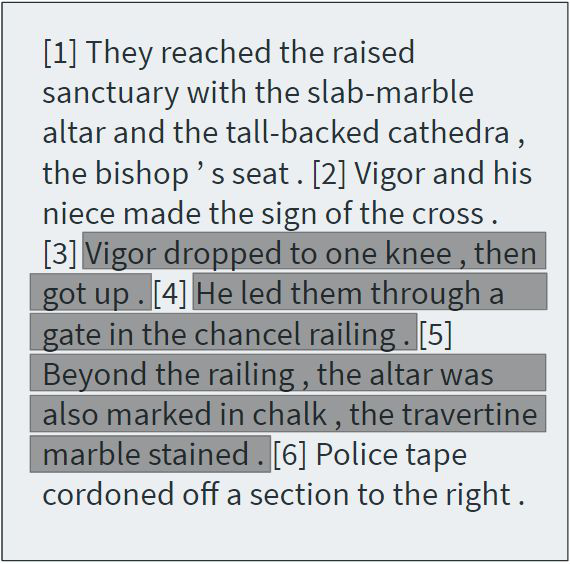TESA: A Task in Entity Semantic Aggregation for Abstractive Summarization
Clément Jumel, Annie Louis, Jackie Chi Kit Cheung
Summarization Long Paper

You can open the pre-recorded video in a separate window.
Abstract:
Human-written texts contain frequent generalizations and semantic aggregation of content. In a document, they may refer to a pair of named entities such as 'London' and 'Paris' with different expressions: "the major cities'', "the capital cities'' and "two European cities''. Yet generation, especially, abstractive summarization systems have so far focused heavily on paraphrasing and simplifying the source content, to the exclusion of such semantic abstraction capabilities. In this paper, we present a new dataset and task aimed at the semantic aggregation of entities. TESA contains a dataset of 5.3K crowd-sourced entity aggregations of Person, Organization, and Location named entities. The aggregations are document-appropriate, meaning that they are produced by annotators to match the situational context of a given news article from the New York Times. We then build baseline models for generating aggregations given a tuple of entities and document context. We finetune on TESA an encoder-decoder language model and compare it with simpler classification methods based on linguistically informed features. Our quantitative and qualitative evaluations show reasonable performance in making a choice from a given list of expressions, but free-form expressions are understandably harder to generate and evaluate.
NOTE: Video may display a random order of authors.
Correct author list is at the top of this page.
Connected Papers in EMNLP2020
Similar Papers
Global-to-Local Neural Networks for Document-Level Relation Extraction
Difeng Wang, Wei Hu, Ermei Cao, Weijian Sun,

Entities as Experts: Sparse Memory Access with Entity Supervision
Thibault Févry, Livio Baldini Soares, Nicholas FitzGerald, Eunsol Choi, Tom Kwiatkowski,


